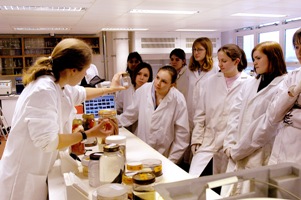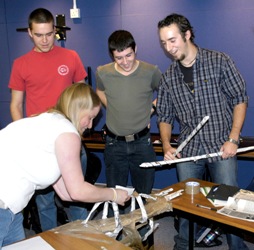
The UK tradition of studying physics, biology and chemistry as separate subjects at GSCE level has gone and has been replaced by single modules covering a very broad spectrum. While some UK degree courses are thriving, a growing number of science and Earth science departments are closing down or merging. Different influences are affecting this pattern. Students may, for example, be opting for the perceived greater excitement of media studies or, in an era of fees, courses that are seen as more likely to lead to well-paid jobs.
The Department for Education and Skills (DfES) has set up a number of programmes in recent years to address the resulting shortfall in science and technology skills. Many of these come under the auspices of the widening participation scheme, Aim Higher – one of whose most productive initiatives has been to put successful students into schools as "ambassadors". Two parallel programmes are currently increasingly popular, the Undergraduate Ambassador Scheme (UAS) and the Student Associates Scheme (SAS).

Both programmes involve undergraduate students from university science departments taking their subject into local schools on a regular basis. This creates a strong bridge between schools and their local university, and helps to raise the HE aspirations of pupils. UAS is a formal component of a degree course with credit points (usually at third-year level) and SAS students are paid for their work.
Both schemes provide a chance for students to develop a broad range of skills that are highly rated by employers. Admission tutors for PGCE courses also like it when their applicants have already tried teaching and are going into the profession with their eyes open.
The programmes not only help to put HE "onto the radar", but also enrich science and geography curricula and bring these subjects alive. What better role models for school pupils than young enthusiastic undergraduates, after all? Pupils can relate to students who are closer to their own age and share similar experiences, creating an openness that promotes self confidence and aspiration.